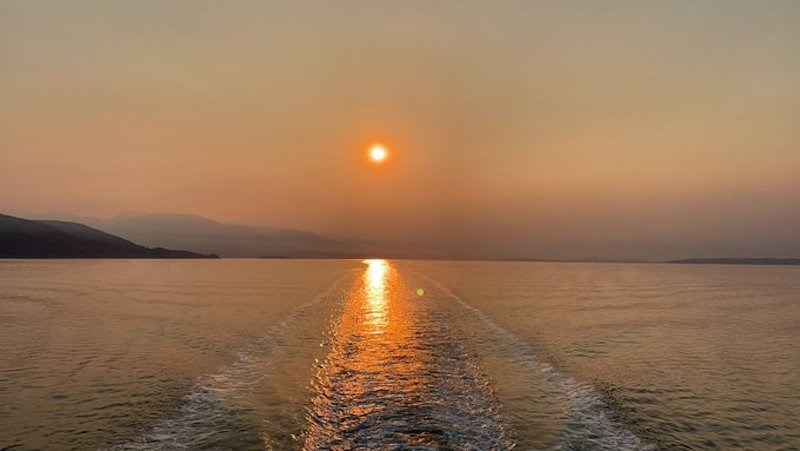"The return of Smaugust."
Metro Vancouverites are sharing images of decidedly smoky skies caused by wildfires burning in B.C.'s interior and Washington.
Metro Â鶹´«Ã½Ó³»issued an Air Quality Advisory for the region and the Fraser Valley Friday (Aug. 13) morning stating that high concentrations of fine particulate matter are expected over the next few days.
The advisory notes that outflow winds are bringing the smoke into the region, which is contributing "to elevated fine particulate matter concentrations and hazy skies."
Smoke concentrations may vary widely across the region as winds and temperatures change, and as wildfire behaviour changes.
In addition to fine particulate matter, Metro Â鶹´«Ã½Ó³»is issuing an Air Quality Advisory for eastern Metro Â鶹´«Ã½Ó³»and the Fraser Valley Regional District because of high concentrations of ground-level ozone as a result of hot and sunny weather.
Several have locals commented that the combination of scorching hot weather and smoke has gotten much worse. One person noted that it feels like being in a "sauna filled B.C. wildfire smoke."
Have a look at some of the images of the hazy skies in the Lower Mainland.
Tips for the heat wave and air quality advisory
Metro Â鶹´«Ã½Ó³»notes that people with chronic underlying medical conditions or acute infections such as COVID-19 should postpone or reduce outdoor physical activity until the advisory is lifted, especially if breathing feels uncomfortable. Exposure is particularly a concern for people with underlying conditions such as lung disease, heart disease, chronic obstructive pulmonary disease (COPD) including bronchitis and emphysema, as well as asthma, and/or diabetes; individuals with respiratory infections such as COVID-19; pregnant women and infants; children; outdoor workers (e.g. construction and agricultural workers); and older adults. Individuals who are socially marginalized may also be at elevated risk (e.g. people who are experiencing homelessness or are underhoused).
The hot weather increasing the potential for heat-related illnesses, too. You should drink plenty of water even before you feel thirsty and stay in a cool place.
Indoor spaces with HEPA air cleaner filtration and air conditioning may offer relief from both heat and air pollution, but please observe any COVID-19 protocols. Consider creating a comfortable space at home with a portable air conditioner (if you do not have central air conditioning).
Check on older family, friends and neighbours. Make sure they are cool and drinking water
If you are experiencing symptoms such as chest discomfort, shortness of breath, coughing or wheezing, seek prompt medical attention. Call 9-1-1 in the case of an emergency.



